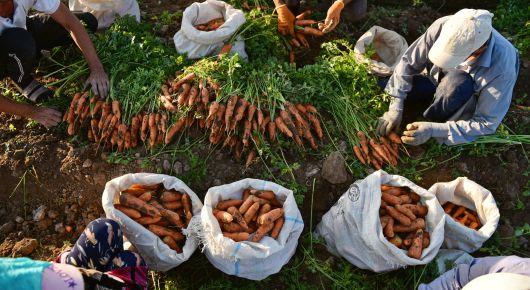FAO supports smart farming in Uzbekistan and Vietnam benefitting youth

Food insecurity and poverty are long-lasting issues in the agricultural sector. As the world’s population is growing, more innovative approaches and efforts are needed to solve these issues without any additional pressure on natural resources.
A new FAO project, “Smart farming for the next generation” implemented in Uzbekistan and Vietnam, will contribute to the achievement of the Sustainable Development Goals, including the eradication of poverty and hunger, and ensuring good health and well-being for everyone. The four-year project has a total budget of USD 3.4 million, provided by South Korea.
“The overall goal of the project is to initiate and promote smart and sustainable production, as well as post-harvest handling and marketing of vegetables grown in greenhouses,” said Sherzod Umarov, programme officer, FAO Representation in Uzbekistan.
Advanced technologies are increasingly being applied in agriculture, especially in greenhouses, by enhancing productivity, climate control, and efficiency in management, which can provide an opportunity to grow a wide range of crops from diverse plant families with high nutritional values. Because vegetables are of higher value, new technologies are more likely to be adopted that improve efficiency and profits, and reduce losses.
A wide range of actions will target farmers and actors of the greenhouse vegetable value chain as the main beneficiaries of the project. They will benefit from improved infrastructure and strengthened extension and advisory services. Technicians and farmers will have extensive theoretical and on-job trainings coupled with technological improvements. Farmers and agro-entrepreneurs can better access agricultural inputs, technology, and other productive resources that enable a more climate-smart agriculture robust enough to cope with ever-common climatic shocks. Moreover, creating new businesses can expand economic opportunities especially relevant for youths.
The project will also help develop supportive policies, organizational skills, and knowledge. Farmers along the value chain will benefit from it, including those working in the post-harvest handling and market areas. Three demonstration sites will be established in each of the two countries for knowledge-sharing and nurturing agri-business opportunities and technology interventions. FAO will closely collaborate with the governments, regional organizations, research, and academia in the implementation of the project.
17 September 2020, Tashkent, Uzbekistan
